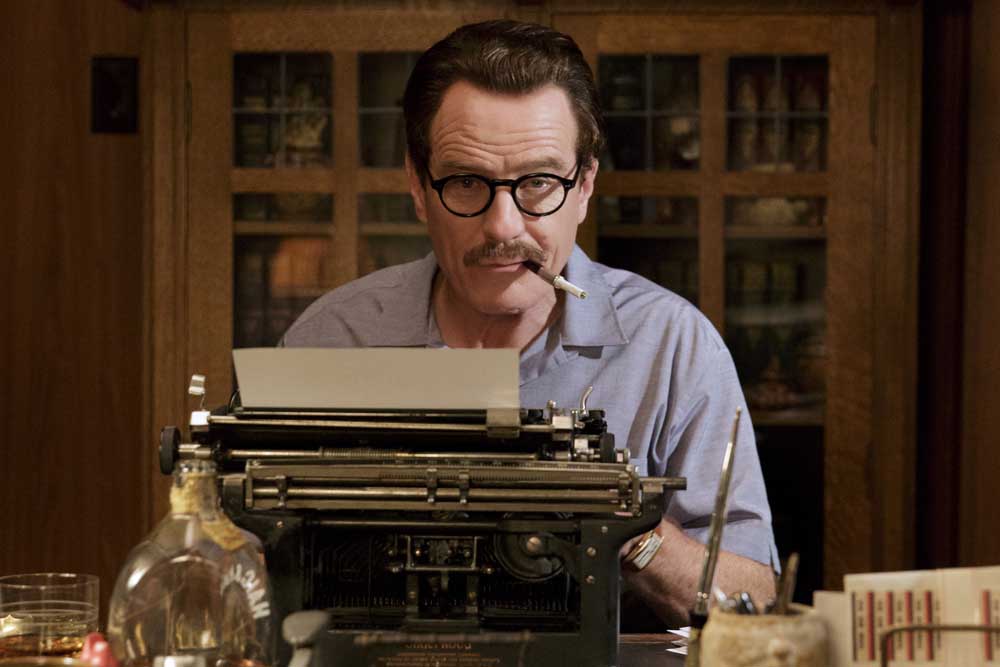‘Trumbo’
Published 12:00 am Friday, November 27, 2015

- Submitted photoBryan Cranston stars as screenwriter Dalton Trumbo in “Trumbo.”
‘Trumbo” is a corny, well-made B-movie about an A-list screenwriter who had to take jobs writing B-movies after he was blacklisted but eventually worked his way back to writing A-movies with Kirk Douglas, aka “Spartacus,” as his champion.
What a strange mess it was, and what a shameful slice of American history.
The great Bryan Cranston sinks his teeth into the title role and chews the scenery with such gusto I half expected him to spit out a chunk of period-piece furniture before we were through. There’s a lot of ham and cheese in the performance, but it’s great fun to watch.
Dalton Trumbo was a larger-than-life character who was probably the most successful and famous of “The Hollywood Ten” — writers and directors with ties and/or sympathies to the Communist Party who were cited for contempt of Congress in 1947 for refusing to cooperate with the House Committee on Un-American Activities. They were given prison sentences, fined and blacklisted from the industry.
Cranston’s Trumbo would work well on Broadway. (Sidebar: The “Breaking Bad” star recently won a Tony for his portrayal of LBJ and will be reprising the role for an HBO biopic.) Forever clenching a cigarette holder and filling the air around him with smoke, pounding away at his typewriter and pounding down Scotch, cracking wise with his Hollywood friends and barking out roaring tantrums while ferociously fighting for his principles, Trumbo is a hurricane of a man.
“Do you have to say everything as if it’s going to be chiseled into a rock?” says Trumbo’s best friend, Arlen Hird (a composite character not based on any specific member of the Hollywood Ten), played in wonderful, low-key, sad-sack tones by Louis C.K. (Later, Hird says he’ll go along with Trumbo’s plan to combat the witch hunt if only to get Trumbo to STOP TALKING.)
In post-World War II Hollywood, Trumbo was living the dream. He was among the highest paid and most successful screenwriters in Hollywood. He lorded over a princely ranch named the Lazy T, and doted on his beautiful wife, Cleo (Diane Lane), and two children. He palled around with the likes of Edward G. Robinson (Michael Stuhlbarg, continuing a string of impressive roles in works from “A Serious Man” to “Boardwalk Empire” to “Pawn Sacrifice” to “Steve Jobs”).
But the party is about to come to a crashing halt because of Trumbo’s membership in the Communist Party.
After Trumbo tells the HUAC to stuff it, he’s forced to serve jail time and banished from the industry. He has to sell the ranch, and the family moves into a modest home where the next-door neighbor glares at them with hatred and the backyard swimming pool is vandalized.
Director Jay Roach gives us too many scenes of characters in dimly lit rooms talking at one another, but he does have a fine sense of the era, from the sets to the wardrobe to the gorgeous automobiles. Trumbo finds work grinding out trash movies for the gregarious, expletive-spewing movie producer Frank King (a perfectly cast John Goodman) while continuing to fight for his rights at the expense of his family.
The Hollywood blacklist extended far beyond the original 10, damaging and in some cases destroying hundreds of careers. It was an ugly period in American entertainment history, with some in the business testifying to save their own careers, while others saw their lives ruined for holding certain political views in a country founded on the principle of individuals having the right to their own beliefs — and to express those beliefs.
“Trumbo” is a reminder of just how wrong the HUAC was, and just how brave Trumbo was to fight back, and just how great it was that SOME Hollywood stars, like Mr. Kirk Douglas, used their power to shine a light on injustice.
— Richard Roeper is a film critic for the Chicago Sun-Times






